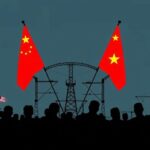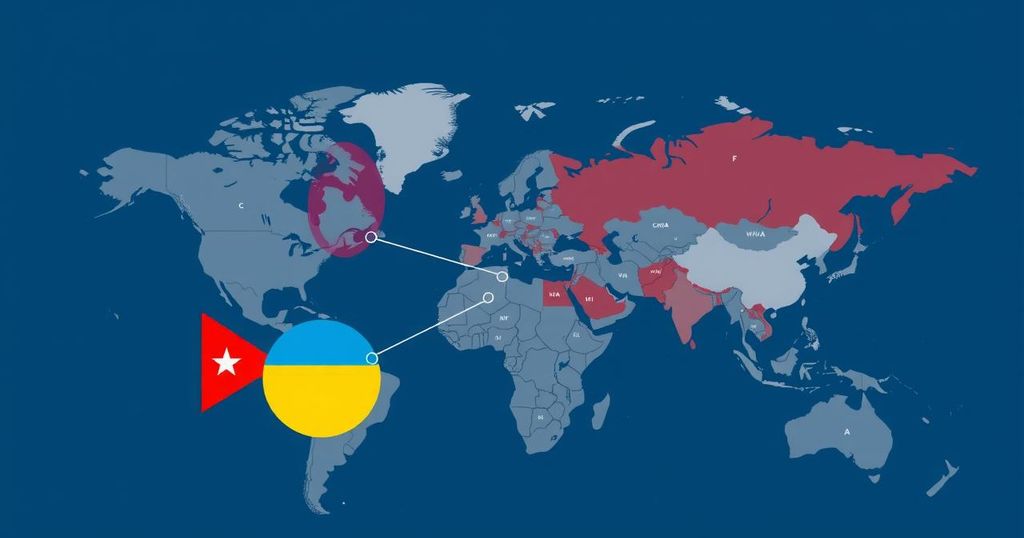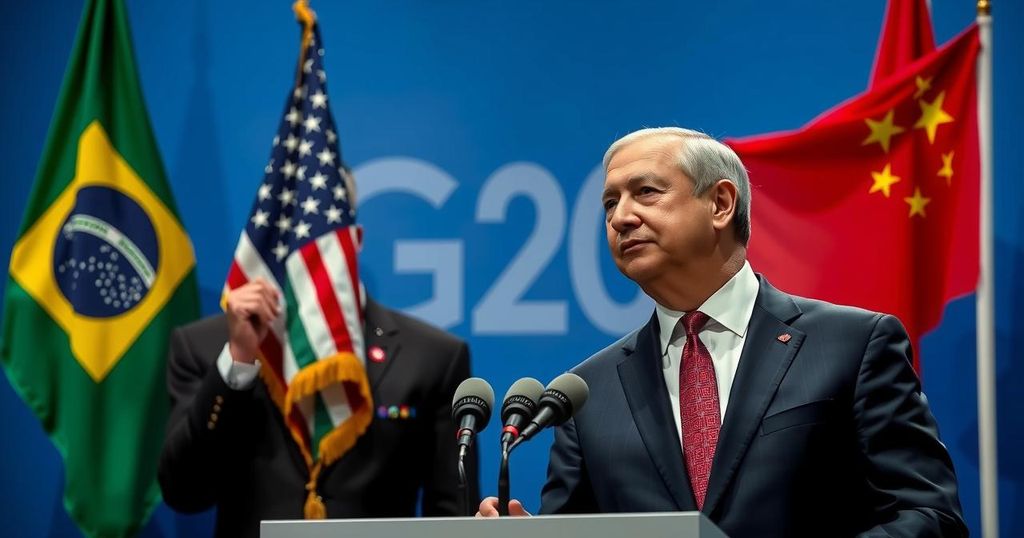China’s Influence on Myanmar’s Ethnic Armed Groups: A Strategic Maneuver
China is urging the Myanmar National Democratic Alliance Army (MNDAA) to sever ties with opposition groups it views as Western-aligned. The MNDAA reaffirmed its allegiance to China to avoid conflicts with Beijings interests. Analysts suggest that China’s strategy aims to stabilize Myanmar while preventing foreign interference, particularly from the United States, amid ongoing military operations in the region.
China is exerting pressure on the Myanmar National Democratic Alliance Army (MNDAA) to distance itself from opposition groups that are perceived to have ties with the West. As part of the Three Brotherhood Alliance, which includes the Ta’ang National Liberation Army (TNLA) and the Arakan Army (AA), the MNDAA has publicly reaffirmed its allegiance to China, emphasizing a political commitment to refrain from collaborating with entities opposed to China’s interests. Following a recent social media statement from the MNDAA, the group made it clear that alignment with Western-backed forces conflicts with their objectives. This pressure from Beijing is strategically motivated, as the MNDAA is situated along Myanmar’s northeastern border with China, making it a crucial player in Beijing’s regional influence. Analysts note that China’s tactics include leveraging its economic clout by reportedly halting trade and supplies to Laukkai, the Kokang region’s capital, thus aiming to isolate the MNDAA from the National Unity Government (NUG), a pro-democracy group spearheading resistance against the military junta. Experts, including Than Soe Naing, highlight that China’s insistence on adhering to the so-called “three bottom lines”—which advocate for avoiding civil conflict, maintaining ASEAN membership, and preventing external interference—reflects its broader strategy to stabilize Myanmar. Furthermore, there is a prevailing concern in China regarding perceived U.S. support for the NUG and other resistance factions, leading to a stance against external influence. Despite the MNDAA’s public commitment to align with China, indications suggest that the group may continue to engage discreetly with opposition forces to safeguard its own interests amid ongoing military actions in northern Shan State. Additionally, the NUG has expressed intentions to protect Chinese investments in a bid to placate Beijing, although it is clear that China seeks comprehensive influence over the region’s political dynamics. As the turbulence in Myanmar escalates, this situation risks deeper discord between China and the United States, especially regarding strategic interests in the region. China’s broader ambition of ensuring stability in Myanmar is intricately tied to its national security and economic aims, particularly as it seeks to secure trade routes through the Indian Ocean.
The current geopolitical landscape surrounding the MNDAA and its relations with China and opposition groups in Myanmar arises from China’s longstanding influence over various ethnic armed factions within Myanmar. The MNDAA, composed primarily of Mandarin-speaking Han Chinese, is strategically important to China due to its geographical position along the border. The situation is complicated by the ongoing conflict in Myanmar, in which the military junta faces significant resistance from the NUG and other armed groups, which are often perceived by China as being aligned with Western interests, particularly those of the United States. China’s involvement in Myanmar is largely driven by economic considerations, including its investments and the need for stability in order to maintain critical trade routes to the Indian Ocean. As such, China’s diplomatic efforts are often aimed at preventing any external influence, notably from the United States, which could undermine its strategic interests in the region.
In summary, China’s pressure on the MNDAA to distance itself from opposition groups perceived to have Western ties is indicative of its broader strategy to maintain control over Myanmar’s political landscape. The MNDAA’s commitment to refrain from alliances opposing China is a reflection of the influence Beijing exerts amidst a complex conflict involving various ethnic groups and foreign interests. The balancing act between maintaining relations with China while engaging with resistance forces illustrates the intricate dynamics of Myanmar’s ongoing struggles and the implications for regional stability.
Original Source: www.voanews.com








Post Comment